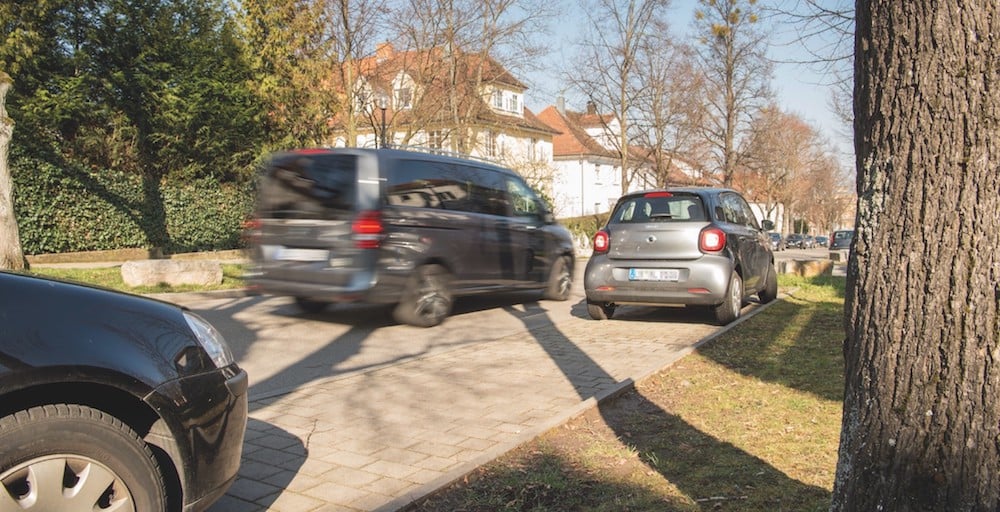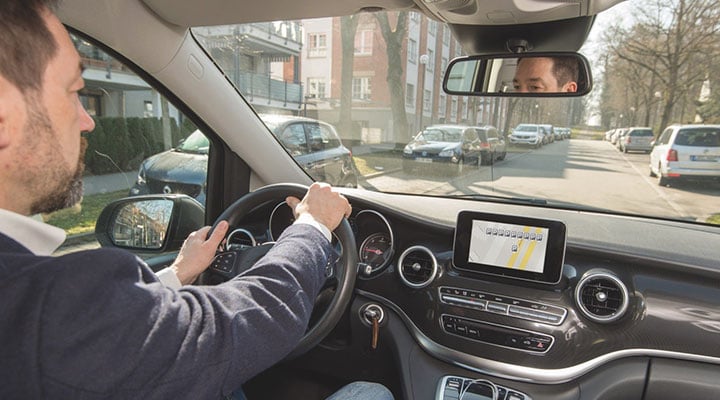Race for the space

The competition is heating up as companies vie to become market leader in the provision of real-time parking-availability data
One of the main focuses of the parking industry right now is perfecting real-time space-availability data. Perhaps the most obvious way of gathering this information is to embed sensors in each and every parking space, on roadways and in parking garages. Indeed this solution is becoming more and more common, but it is limited by the hardware cost that is inevitably involved. Consequently it seems very unlikely that such sensors will ever be installed in every single space in a city, let alone across an entire nation, especially as cheaper, smarter ways of gathering the same information are now being developed.
Predictive algorithmsThe RingGo parking payment app features Parking Prediction, a function that helps motorists find free spaces in central London and across the UK. This feature does use data from parking sensors embedded in roadways, but also combines it with historical data, using a unique algorithm developed by parent company Parkmobile to predict the likely proportion of free space. It can even be used to predict availability in locations that have no sensors, based purely on historical data. This information is offered back dynamically to the motorist as part of an ever-changing map.
RingGo’s Parking Prediction won the Parking Award at the Intertraffic Innovation Awards, held at Intertraffic Amsterdam 2016, with its algorithm particularly impressing the judges. The solution is an extremely cost-effective alternative to bay sensor parking. Whereas bay sensors currently cost about £203 (€227) per unit (plus the costs of installation and maintenance), the RingGo estimate of parking availability is offered free-of-charge to drivers and operators.
“Clever use of real-time data directs drivers to find parking quickly and easily. And it just shows that you don’t need to spend thousands on hardware to help people get on with their lives,” says RingGo’s commercial director, Harry Clarke.
Cars that find spacesAnother solution that doesn’t involve embedding expensive hardware in the pavement is being developed by Bosch and Daimler. It uses special onboard sensors, already installed as standard in many new Mercedes models, to constantly monitor curb-side parking availability. So even when a driver isn’t actively searching for a space, their car will be. It will then relay the information gathered to a cloud-based server, so that it can be made available for use by other Mercedes drivers who are looking for somewhere to park.
Mercedes and Bosch call the new system ‘community-based parking’. They believe it will make finding a parking space faster and easier. They have launched a pilot project in Stuttgart, Germany, involving test vehicles equipped with the sensors and a communication interface with which to report and receive such data.
“Nearly all of our Mercedes-Benz cars are connected by a smart network. When they are also equipped with the right sensors, they generate data ‘in passing’, so to speak. We see using that data for the rapid identification of available parking spaces as the next logical step,” says Sajjad Khan, head of digital vehicle and mobility at Mercedes-Benz.
“With community-based parking, finding a space becomes a shared endeavor. This lets us shorten the search for parking considerably and guide drivers straight to an available space,” says Dr Rolf Nicodemus, head of connected parking at Bosch.

Mercedes’ ultrasonic sensors are able to scan the roadside at speeds of up to 34mph (55km/h). If they find a parking spot, the data is sent to the Bosch IoT cloud. Data-mining methods are then applied to verify that the space found is available. If, for example, vehicles keep reporting the same space on a busy road, it is likely this is, in fact, a driveway and so isn’t actually free to park in.
In the first phase of the test, the system is working out the probability of finding a space on a given street. In the next phase, it is envisioned that it will even be possible to report the dimensions of available spaces in real time. There are also plans to add data from public parking garages. All the data is displayed on a parking-space map on the in-car display, or on the ‘Mercedes me’ app. All the driver has to do is select a destination in order to be guided straight to an available parking space.
Healthy competitionOf course, Mercedes is not the only car company racing to develop smarter parking solutions. Also nominated in the Intertraffic Innovation Awards 2016 was San Francisco-based ParkNow, which has integrated its software into BMW cars, giving drivers the ability to search for, reserve and pay for parking spaces on- or off-street, all from behind the wheel. Furthermore, RingGo faces stiff competition from a host of other parking apps, such as AppyParking in the UK. The developers of this app claim it is able to combine parking-sensor data with data gathered from third-party hardware devices installed in cars to ‘search’ for spaces in much the same way as the Bosch-Mercedes system, allowing it to provide a full picture of parking availability. Currently there is no shortage of options for anyone wishing to use technology to help in their hunt for a parking space. It remains to be seen which systems will emerge as market leaders, and which will be left going round in circles hunting for an available opening.
This article was originally published in Intertraffic World 2017.
View the magazine
Share your story
Do you have an innovation, research results or an other interesting topic you would like to share with the professionals in the infrastructure, traffic management, safety, smart mobility and parking industry? The Intertraffic website and social media channels are a great platform to showcase your stories!
Please contact our Sr Brand Marketing Manager Carola Jansen-Young.
Are you an Intertraffic exhibitor?
Make sure you add your latest press releases to your Company Profile in the Exhibitor Portal for free exposure.


